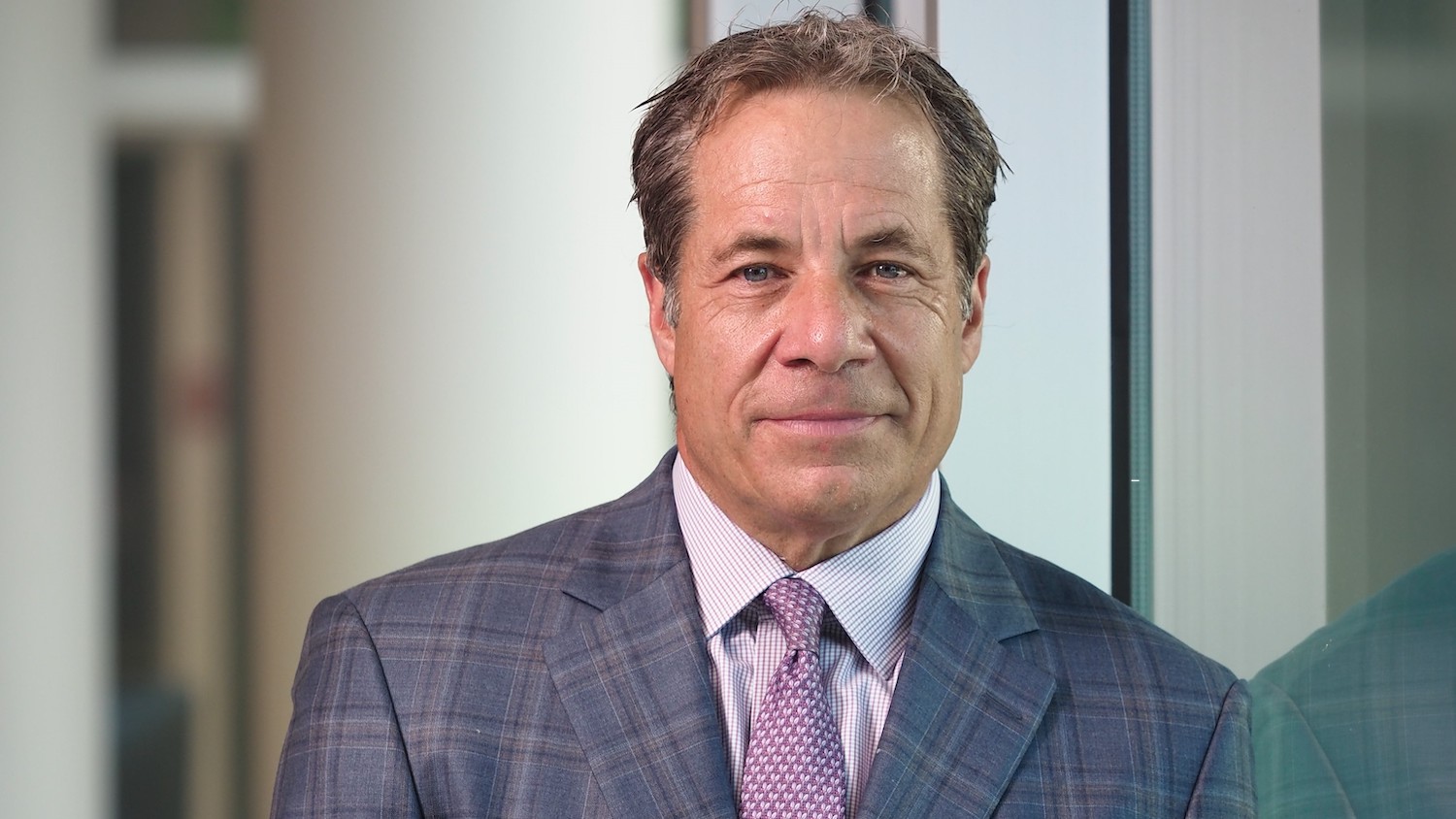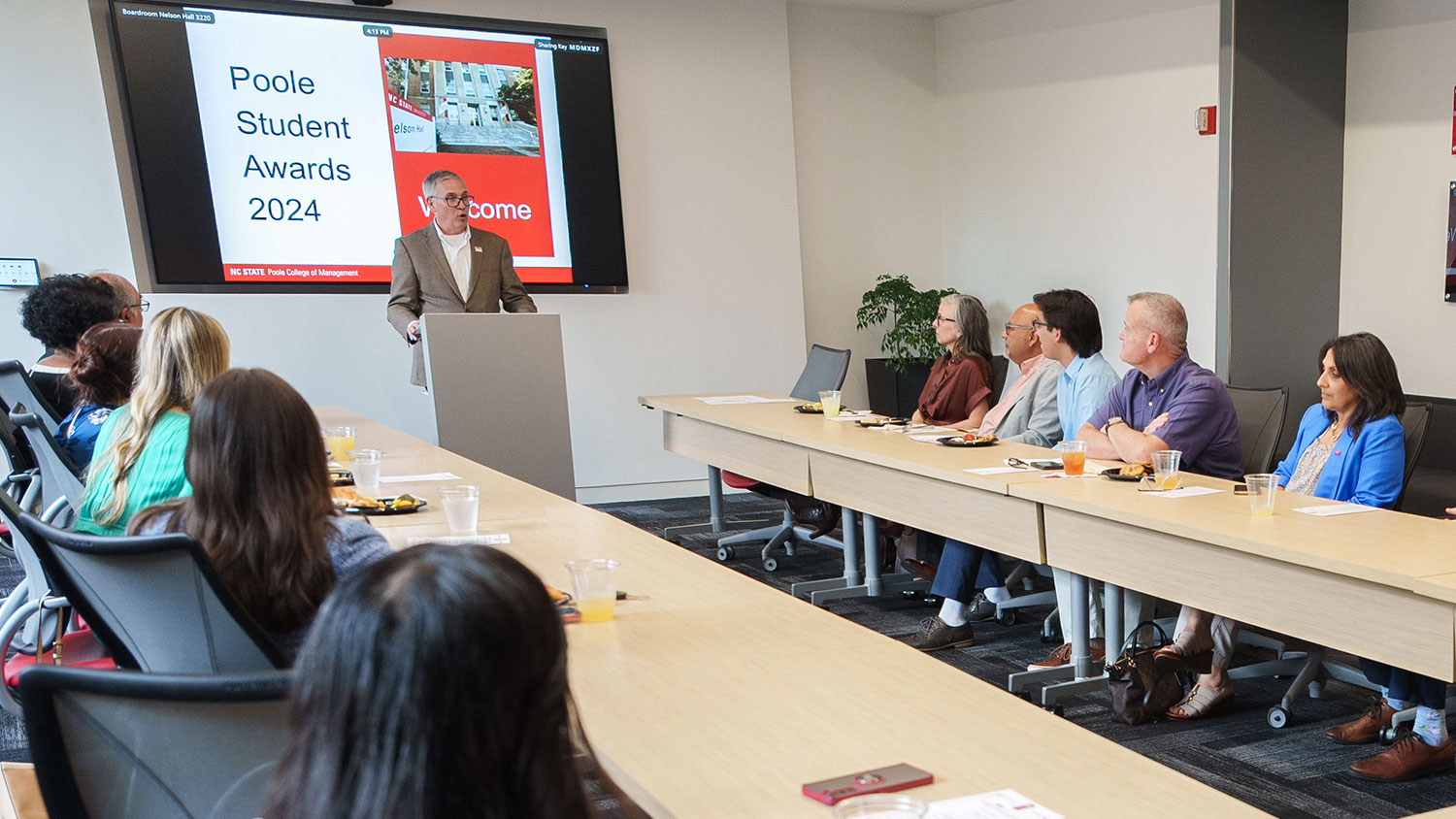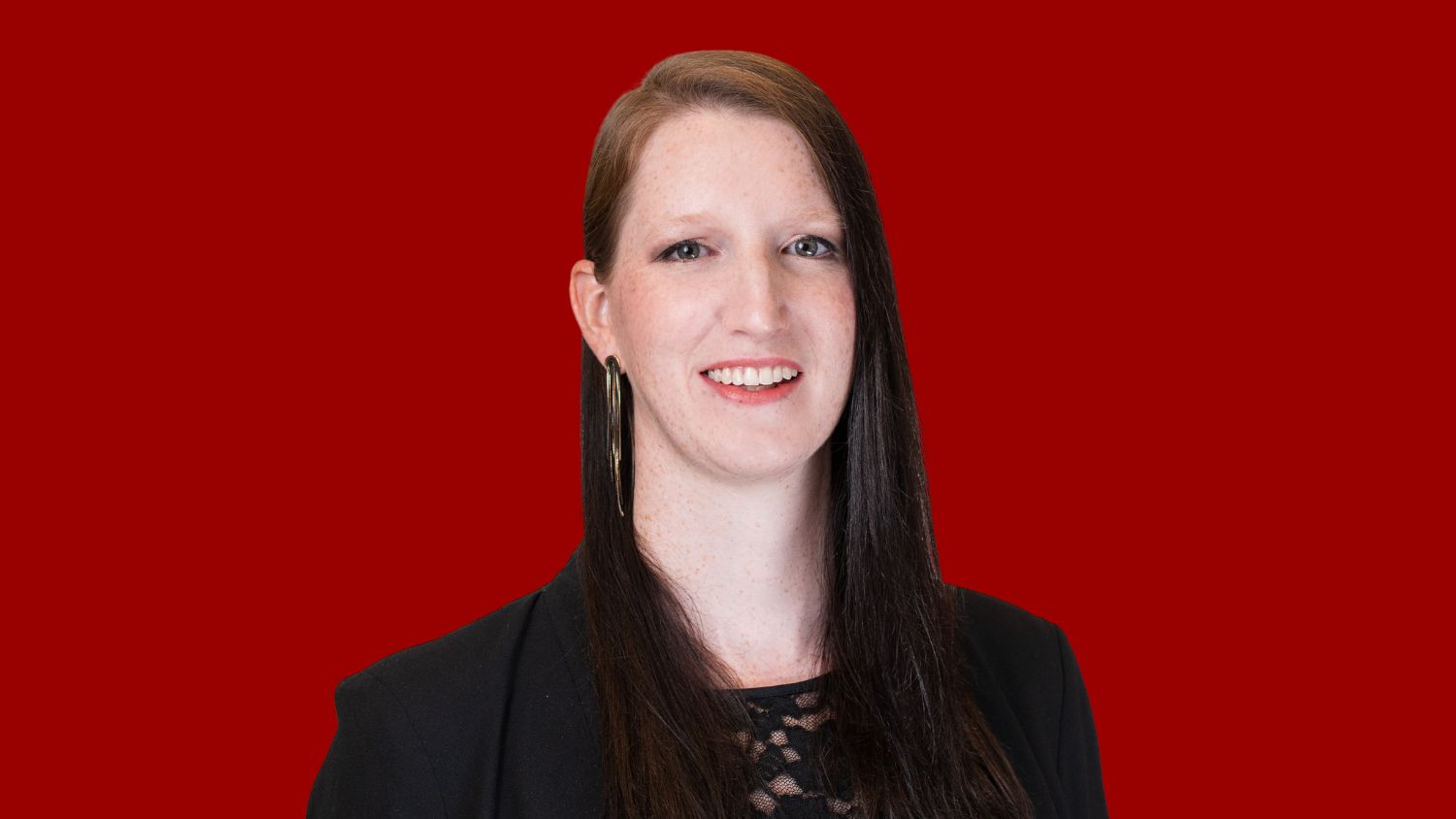By Mark Tosczak
Most accountants don’t wait until they’re 52 years old to earn their Certified Public Accountant credential.
But most accountants don’t start their careers as engineers and spend decades working as a management consultant before taking accounting classes and sitting for the CPA exam.
James Scalise, professor of the practice in the Poole College of Management’s accounting department, isn’t most accountants.
“I did the engineering degree to have a technical degree, but I probably wasn’t much of an engineer,” says Scalise, who earned an MBA after completing his undergraduate engineering degree. “When I started my career a lot of what I was doing was basic supply chain work. Computers were new to commercial businesses and there was a lot of growth with respect to how technology was used to support businesses and business processes.”
As the supply chain projects transitioned into broader management consulting engagements — at KPMG, a Big Four public accounting and consulting firm — Scalise found himself drawn to finance and accounting projects.
Delving into accounting
“I was fascinated by the intricacies and complexities of cost accounting,” he says. “I did a lot of projects where companies were focused on, ‘How do we drive down costs, how do we manage costs, how do measure costs?’”
Cost management, in turn, led Scalise to learn more about finance, profitability and accounting. He also discovered this broader skillset allowed him to understand different parts of businesses.
“When you say you’re going to lower costs you have to know how to do it and where you’re going to do it, and that’s where you bring the operational side into that,” Scalise says. “It allowed me to be able to speak fairly effectively with people who are responsible for operations and people who are responsible for finance and accounting.”
After deciding that he had accomplished what he wanted to as a consultant, Scalise turned to teaching.
“I spent a lot of my time developing young people in the consulting profession,” he says. “It just felt like I could help students with some of their experiences and coursework get a leg up, if you will, on their journey through their first years of work.”
Scalise helped develop and teach a course on financial and accounting analytics, using cases — essentially real-world business challenges — to help students understand how to apply accounting skills to solve business problems.
He also teaches other accounting classes and facilitates practicums that give students experience working with businesses.
‘Accelerate your trajectory’
Scalise’s goal in the classroom is, of course, to ensure students learn the fundamental accounting concepts they need. But he also wants to give them experience in applying that knowledge the way they’ll be expected to once they graduate and go to work.
“Part of the goal is to be able to understand how to assemble the details and draw hypotheses from what the information tells you,” he says. “From there, it’s more about me trying to coach them into just thinking through it in a way that has some logic, because there’s no single right answer.”
Ultimately, he wants to help students succeed professionally — and do sooner, rather than later.
“What I try to explain to students is regardless of whether you have this kind of job or that kind of job, life is going to be a series of projects,” he says.
“The more I can teach you about how to go through that process, to participate in a meaningful way early in your career, it’ll accelerate your trajectory. People will go ‘Wow, that person understands what they’re doing. I’d like to have them on my team.’ That’s the highest compliment you can have for a young professional, and that’s my orientation.”



